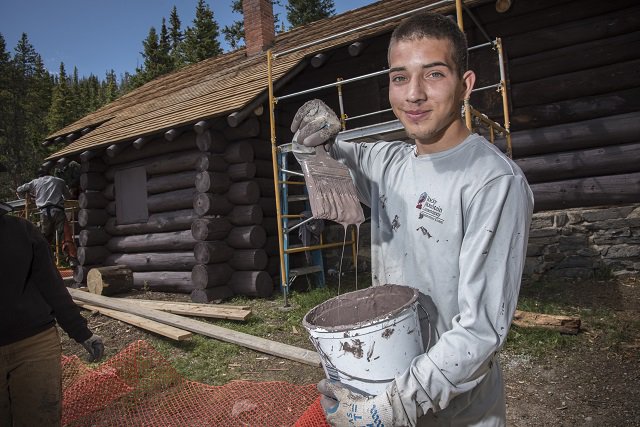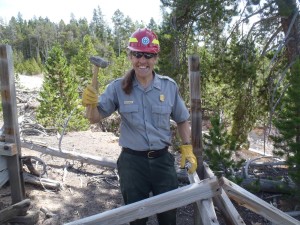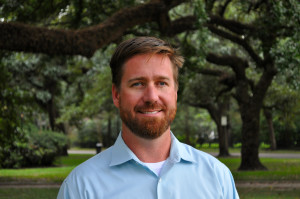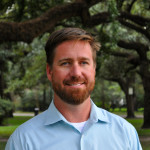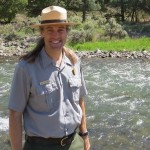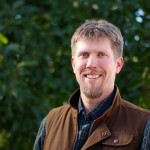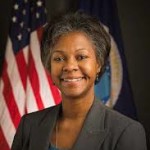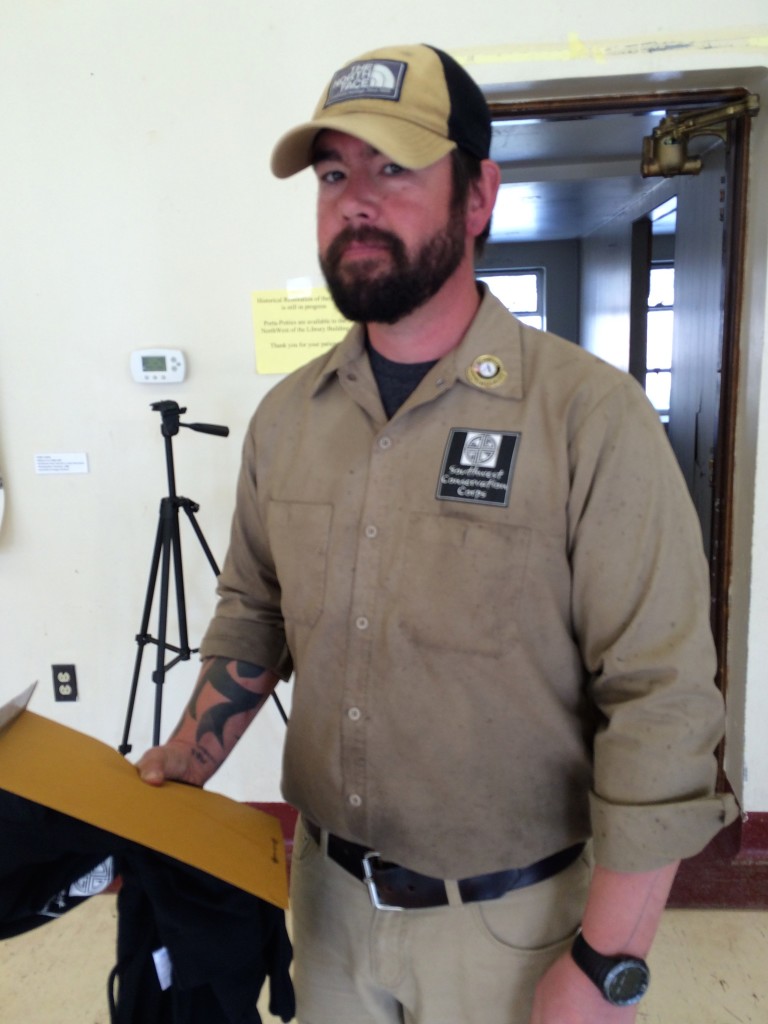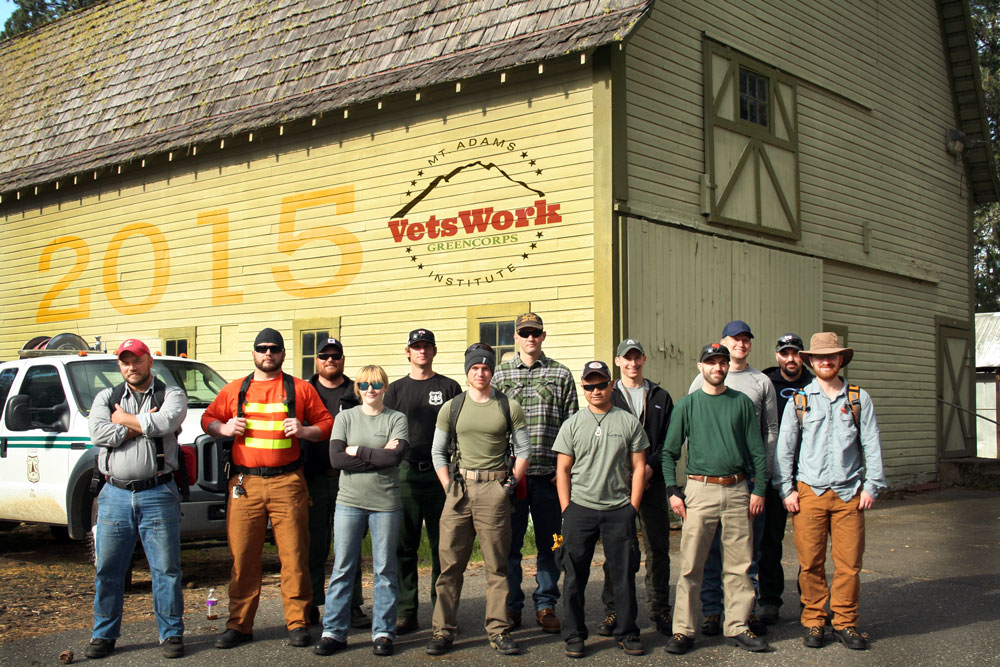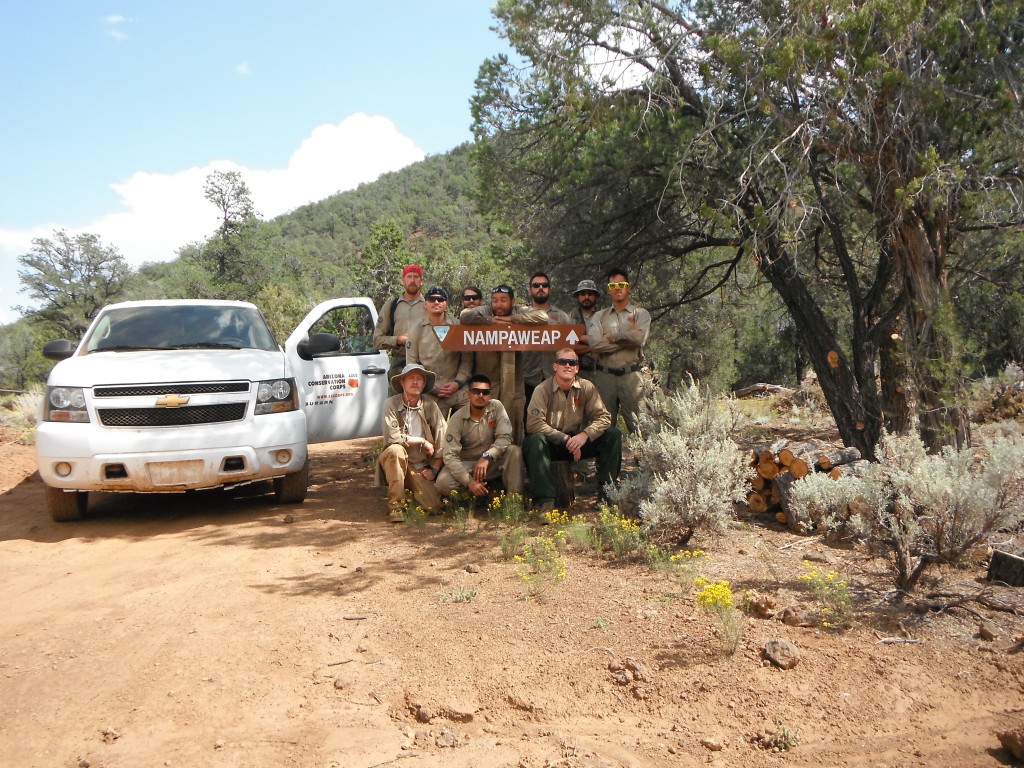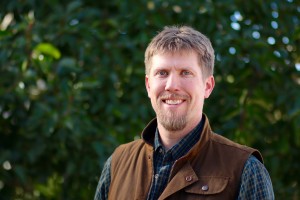
Jeff DeQuattro is a 2016 21CSC Champion of the Year. Learn more about the 21CSC Champion of the Year Award.
Zac Ribbing
U.S. Forest Service – Coronado National Forest
Zac Ribbing works in wilderness and trails for the Douglas and Sierra Vista Ranger Districts on the Coronado National Forest in Southern Arizona. Zac has been a Forest Service employee continuously since 2003 working in the fields of archeology, fire, trails and recreation management. Zac has a long history of partnering with Conservation Corps and other environmental NGOs in Southern Arizona. He is widely regarded as a warm, affable, and supportive project partner. Zac’s work with Corps earned him recognition as partner of the year for the County-based Coconino Rural Environment Corps (now Arizona Conservation Corps) for four consecutive years from 2009 to 2012. In 2014, he was the recipient of the USFS Wilderness Legacy Award.
Zac has worked with a variety of youth conservation programs, including Southwest Conservation Corps, Arizona Conservation Corps, American Conservation Experience, and the Student Conservation Association. He has facilitated projects, provided technical trainings, and arranged job shadowing experiences with other agency employees so that Corpsmembers can explore career opportunities in public lands management. He has personally mentored Corpsmembers, written letters of recommendation, and even spent time living and working with crews in the backcountry. In his 12 years with the Forest Service, Zac has established himself as an effective community partner, coordinating the efforts of multiple groups to complete high-priority natural resource projects.
“Zac is extremely dedicated, invested, and humble. He is an advocate for his agency, the land, and Corps programs. He is one of the rare individuals who finds balance in meeting the needs of both people and the environment.” – Brian Gold, Regional Director, Arizona Conservation Corps
Q&A with Zac Ribbing
1. Tell us a little bit about your background. How did you get started in conservation and land/water management?
I always loved the outdoors, growing up canoeing, fishing, hiking and biking. In 1998, I landed a position with the Forest Service through the Student Conservation Association. After that I realized I should strive to be involved with Public Lands and help others appreciate recreation opportunities on these lands. Later I went back to school and received a Bachelor Degree in Forestry with a specialization in Recreation Resource Management (2003). As I approached my graduation I networked with some of the folks I met in my SCA term. The week after graduation I was working for the Forest Service and the rest is history.
2. How did you become involved with the 21CSC/with Service and Conservation Corps?
I have a long history working with Conservation Corps. Since I myself started in a similar fashion I feel it’s important to incorporate these programs into what I do. In 2005, I came in a position more conducive to making decisions regarding how we accomplish work. Since then, I have done my best to utilize youth conservation corps. I appreciate seeing youth get excited about the outdoors and become stewards of the land.
In the last few years as the 21CSC has become stronger nationally, so has its incorporation into our program locally. Here on the Coronado National Forest we have used it to fund crews that tie into the Public Land Corp act. This has the added benefit to the young adult to not only gain useful skills and connections in the Agency, but time to be hired under the PLC hiring authority. It’s also a chance for youth to try a career path out before they make a full commitment to it. They may find there are opportunities they never even knew existed.
3. What advice would you offer to other employees from land/water management agencies and nonprofits that are interested in partnering with 21CSC programs (What to expect? Where can they turn for resources?)
I would wonder why they are reluctant to get involved this type of program first.
My feeling is that some folks don’t like or understand change, and are hard to convince a new way of operation is better. The old ways have already failed and holding onto the notion that it’s going to get better will leave them wondering what happened as they watch public services fade away.
It’s not just programs like the 21CSC and conservation corps that land managers need to be looking into, it’s all the support that can come from Non-profit organizations and partner groups. Many times our partners can help with acquiring funding though grants and or volunteers. Some grant funding is even aimed at non-profits to use on public land. So the only way you can get help and funding is through their integration.
What to expect; well expect people, especially your locals, to become advocates for the land manager. Volunteers or youth involved in Corps programs are more likely to stand up for what they have been involved with. There is an inherent ownership and pride that comes with being involved, so the more you can involve your public and youth, the more support you will receive. It really can be a win-win situation.
4. What advice do you offer to young people in 21CSC programs who are interested in careers in conservation and land/water management?
If I were talking to someone already involved with youth conservation corps, I would say they are already on the right track. Take the time to get to know the people in the agencies you are partnered with. Get advice, if possible, from those agency contacts and express what you are interested in. I can’t speak for others but I enjoy these conversations and can usually offer some advice on how to pursue a career in land management. If I can’t, I can at least put them in touch with someone who is in the field they are interested in.
If I were speaking to someone looking to get involved with an outdoor related career. I would suggest they look into youth conservation corps. Followed by a few contacts they should start with in their area.
5. What are the most beneficial aspects of partnering with a 21CSC Program?
To me the benefits are all around. Public land managing agencies are struggling to accomplish work on the ground. We have fewer and fewer people it seems every year. Entry level positions are hard to find, and tough to compete for. The corps offer a fantastic avenue for youth to get involved. On top of that youth corps teach valuable land ethics from the start, so respect for the land and ethics are instilled to corps members. Probably better than what they would receive if they were hired on directly in an agency. Not to say that agencies neglect to instill values of land ethics, but that corps may do this better.
For public land I see this as a huge win. The future of Public Land is in our youth’s hands, and if we want the continued preservation of special areas such as Wilderness to remain, we must convey or rather instill its importance to our youth.
6. What do you see as the future of Service and Conservation Corps?
I really see it as the way to bring a young person up in the field of land management. Combined with higher education, a person gets to experience a wide variety of possible paths while gaining skills and connections valuable for their success. Not only success, but their happiness. After all, what is the point of all this if there is not a rewarding and satisfying feeling in what you are doing. I chose this path because I wanted to do something I cared about and be able to call it a career.
